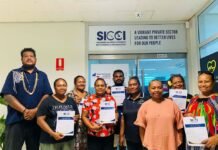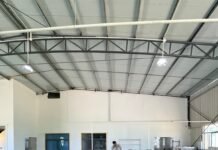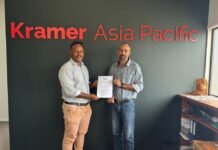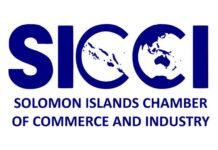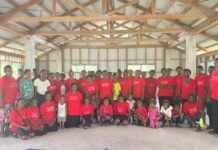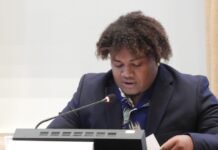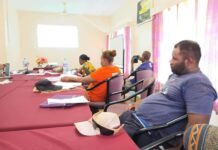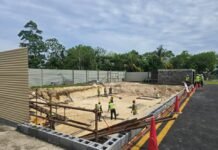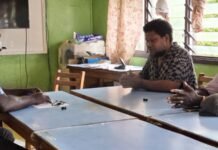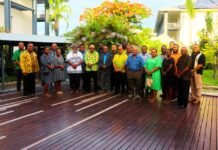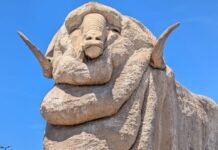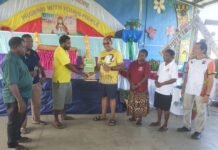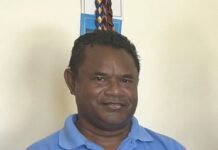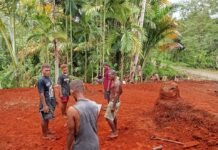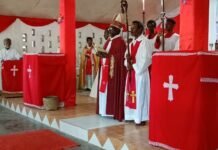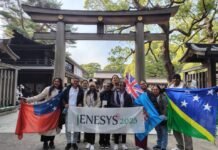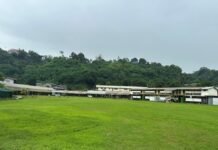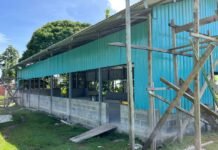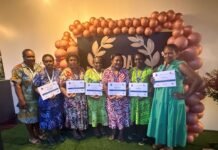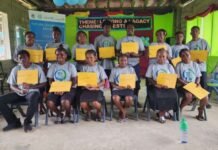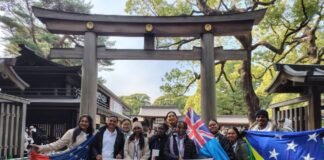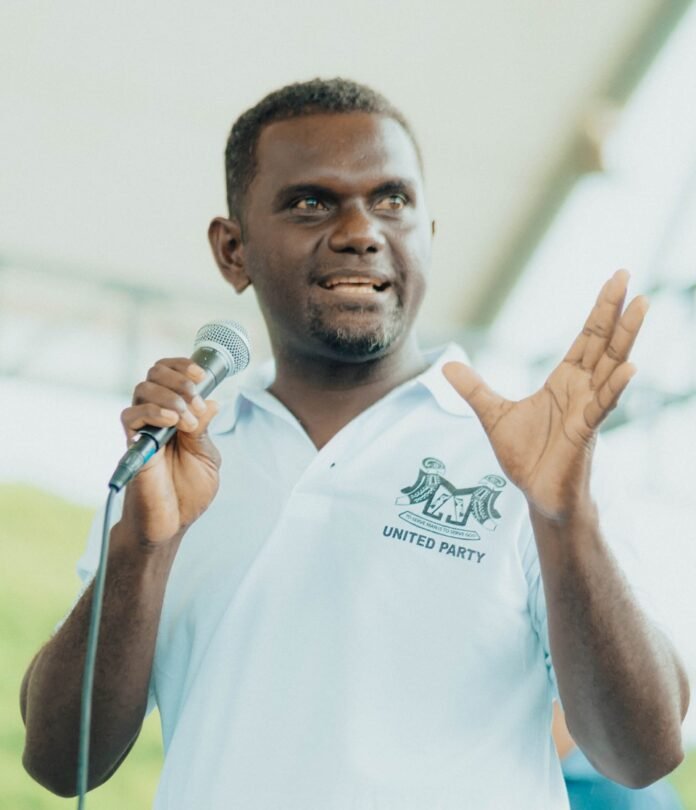
BY JOHN HOUANIHAU
AS a candidate who deeply cares about the well-being of this tribal community, Dr. Hendrick Kuboto Kaniki is set to contest the 2024 joint election with a focus on health and education in rural areas as part of his campaign platform.
The Solomon Islands United Party (UP) candidate will contest against five (5) other candidates vying for the parliamentary seat of South Vella La Vella in Western Province.
Dr. Kaniki, with roots in Lambu lambu and Valapata village, South Vella La Vella, is a community-driven person who is passionate about rural setting development, engagement, and empowerment.
With his primary focus on the areas of quality education and primary health care, as they’re the basis of any community, Dr. Kariki believes that these two areas are the foundation for a thriving society, and he is committed to addressing key issues and implementing necessary changes to improve the well-being of all residents in South Vella La Vella Constituency.
“My mom is a primary school teacher, and since I follow her to where she teaches, I understand the struggle we faced at village level in terms of education,’’ Kaniki told SUNDAY ISLES in an exclusive interview. “Since growing up in a rural setting, I have witnessed the many challenges the education and health systems have faced within my constituency.”
Dr. Kariki will contest the national parliamentary election on April 17 under the banner of UP.
“I decided to team up with UP because of the party’s policies, which aim to address pressing issues like education and health affecting the Solomon Islands.
“UP aims to provide better health care and a cleaner environment, decentralize health information and services to rural areas, and the party’s policy is to provide quality education for every Solomon Islands child from early childhood to adulthood, especially in the rural setting.
“In terms of resources, we still have the same number of schools as 10 or 20 years ago compared to the growing population in South Vella La Vella constituency, which is so high, as well as the whole of the country. So one of the areas to address is working on the number of schools we have. If not in the short term, we do renovations and expand existing classrooms,’’ he said.
Dr. Kaniki is a well-known figure in his home village of Valapata. Over the years, he has also contributed his time and experience through facilitating, engaging in, and managing marine and forestry conservation projects and training workshops in his tribal community.
He is also an advisor to the Sirubai Voko Tribe Association (SVTA), a community-based organization that is led by and for the people. The association upholds a bottom-up approach and is centered on people and the natural resources at hand.
“My rural community of Valapata has previously taken a first step by building a six-class classroom with the Japan International Cooperation Agency (JICA) Grassroots project in 2020.
“That is one of the initiatives I took to address even before contesting for parliament. Going into power would be a good opportunity for me to work closely with the ministry through the government to improve education services. Of course, we can tap partners outside, and we have been doing that even before going into power.
“Going into power is an advantage to work with partners to address other issues that the Ministry of Education is unable to address in terms of logistics, infrastructure, and probably budgeting too.
Dr. Kaniki believed that the school grants received by the schools were not enough to cater for the education services needed by children at the schools, and so he is interested in establishing a rural training center at the community level.
“Since we haven’t had that at the constituency level in Vella La Vella for a while, it’s good to capture total inclusiveness in education so that students who cannot go through formal education to the university level can be provided with alternatives,” he noted.
Having worked for more than ten years as a senior medical officer for the Ministry of Health and Medical Services, Dr. Kariki holds a Bachelor of Medicine and Bachelor of Surgery (MBBS) degree from Fiji National University.
“Just like education, the clinics are run down, of course. Medicine is not in time, but that one is a national issue. So going into power means, first of all, infrastructure. Renovating existing infrastructure at the constituency level,’’ said Dr. Kaniki.
Based on his observations about the health infrastructure in his constituency, Dr. Kaniki said there is a need to improve the health care facilities in his constituency.
“I would like to thank our former Member of Parliament. I give credit to him for his initiatives to build two clinics, one in Kolokolo village and one in Eleoteve village, but based on what I have seen, we can do better than that one. We can build a proper health service because his plan is not a standard plan of health but similar to a normal building; however, a health building is totally different, a little more technical, and more different to cater to our people at home,’’ he said.
With a clear vision and a strong commitment to improving the health and education systems, Dr. Kaniki is poised to make a positive impact on the community.
“If the community and nation are not sick, you don’t have to spend so much money on drugs. But when the nation is sick, you need to spend more on drugs, which is an expensive exercise to do.
“We need to raise awareness at the rural level, where it also goes down to us. We can receive the information, but whether we follow it or not depends on us. So at the end of the day, the choice is ours.
“If you want to live healthy, then you have to eat healthy, but at least the information should reach down to the community,’’ Dr. Kaniki said.






